"Logic was the first DAW I used with audio - then Ableton came along and pretty much took over the whole creative process of what I do": Luke Slater
As the UK techno legend prepares to release his new L.B. Dub Corp album, we visit him in his gear‑stuffed studio
British techno legend Luke Slater is a man of many aliases. He’s probably best known for his work as Planetary Assault Systems, a moniker under which he’s been releasing tough, drum-machine-focused techno since the mid-’90s. While that strain of techno is undoubtedly a cornerstone of Slater’s sound, Planetary Assault Systems is only part of the story of who he is as a producer.
Slater’s prolific body of work touches on ambient electronics, acid, house, psychedelic dance music and crossover electro-pop, working as aliases including The 7th Plain, Clementine and LSD, as well as under his own name.
More recently, he’s been releasing music as L.B. Dub Corp, a project loosely rooted in the sounds of classic house, but one which allows Slater to experiment with elements of jazz, soul, electro and any other influences that happen to grab him in the moment.
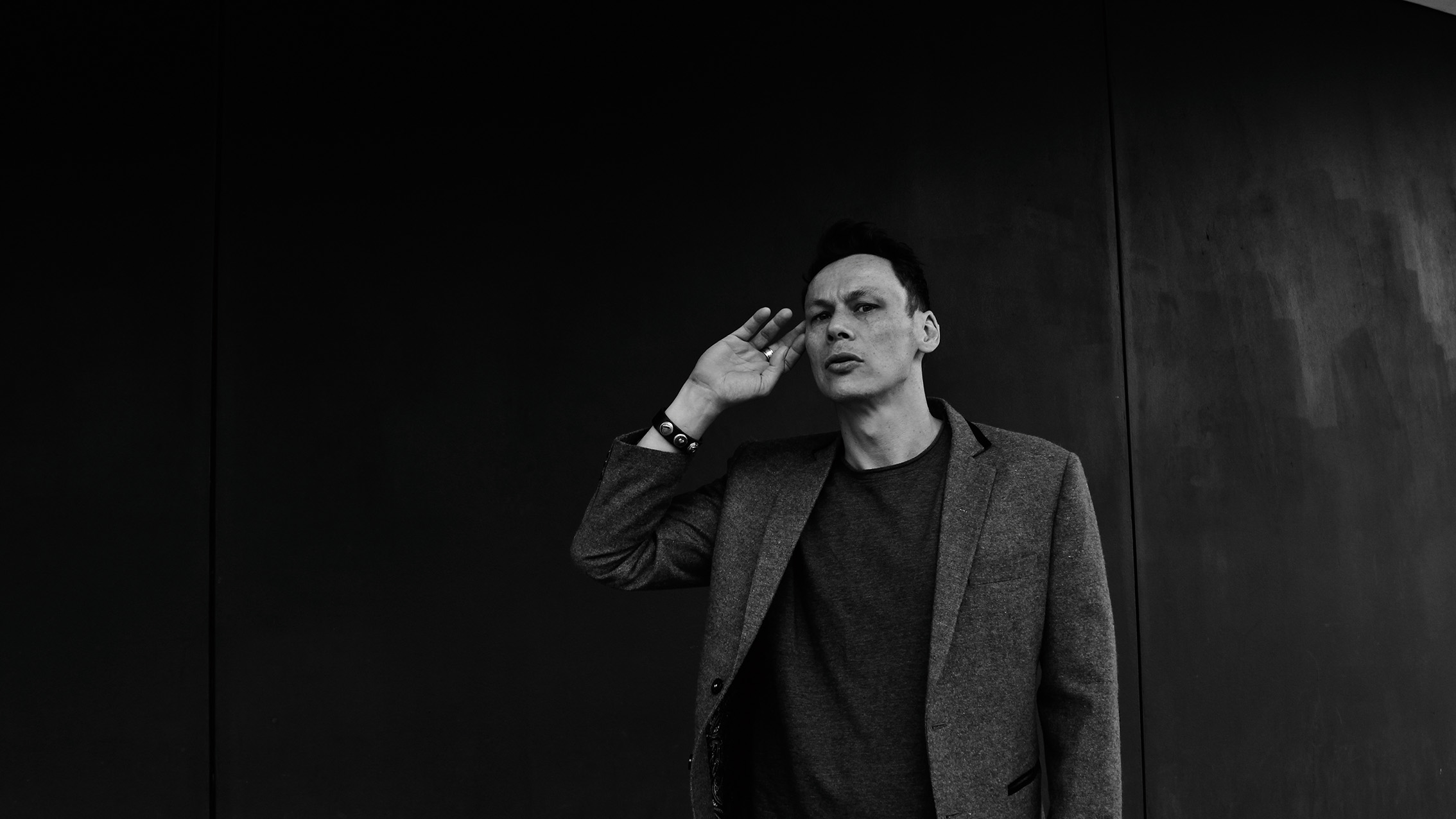
Later this month, L.B. Dub Corp returns with new album Saturn to Home, a collection of largely vocal-led tracks with contributions from house legend Robert Owens, Berlin artist Miss Kittin and dub vocalist Paul St. Hilaire, as well as featuring Slater on drums – an instrument he started playing as a child but has never previously worked into his own releases.
We caught up with Slater in his enviable studio to talk about his relationship with his gear, his approach to collaboration and how he finds space to experiment.
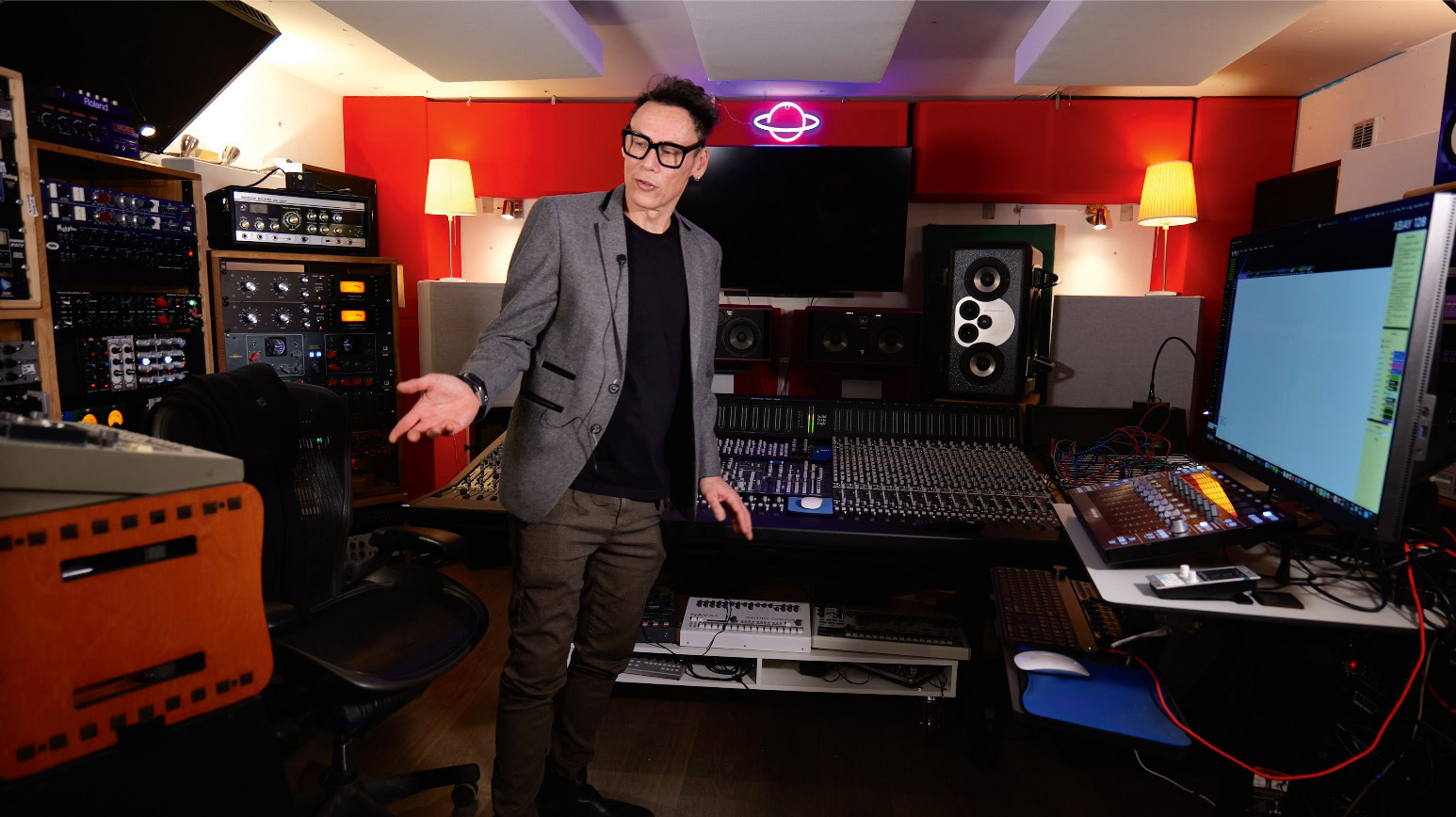
The new L.B. Dub Corp album Saturn to Home is the first time you’ve incorporated your own drumming. Tell us about how that came about…
“It’s something I’ve been pondering on for quite a long time, actually. But A, I didn’t have the kit set up and B, there wasn’t much of it left to set up anyway. It’s just never been the right time to start exploring that. It’s not really part of what I’ve been doing for a long time. Even though I’ve always been interested in it. There’s never really been a place for it.
Want all the hottest music and gear news, reviews, deals, features and more, direct to your inbox? Sign up here.
When I started thinking about L.B. Dub Corp and what we were going to do for this album, one of the first questions was, ‘should I use real drums on it?’
“The L.B. Dub Corp album, it just suited that more. There’s something about real drumming; it doesn’t matter how good you are at programming acoustic drums on a computer, it doesn’t really quite capture the feel. It’s so subtle sometimes and you can get really close with programming, but the human-ness of real drums, as someone who started out playing drums before anything else, that’s really important to me. So when I started thinking about L.B. Dub Corp and what we were going to do for this album, one of the first questions was, ‘should I use real drums on it?’
“My experience of recording real drums before this was pretty much zero. The last time I played drums properly I was a kid. For two months, there was this experimental period where it was just me and the kit, and a friend of mine who helped out a bit by moving mics around. We were testing all these different things. We weren’t really following the rules much. We were just trying to tune the drums and put stuff on them to get something that sounded good.
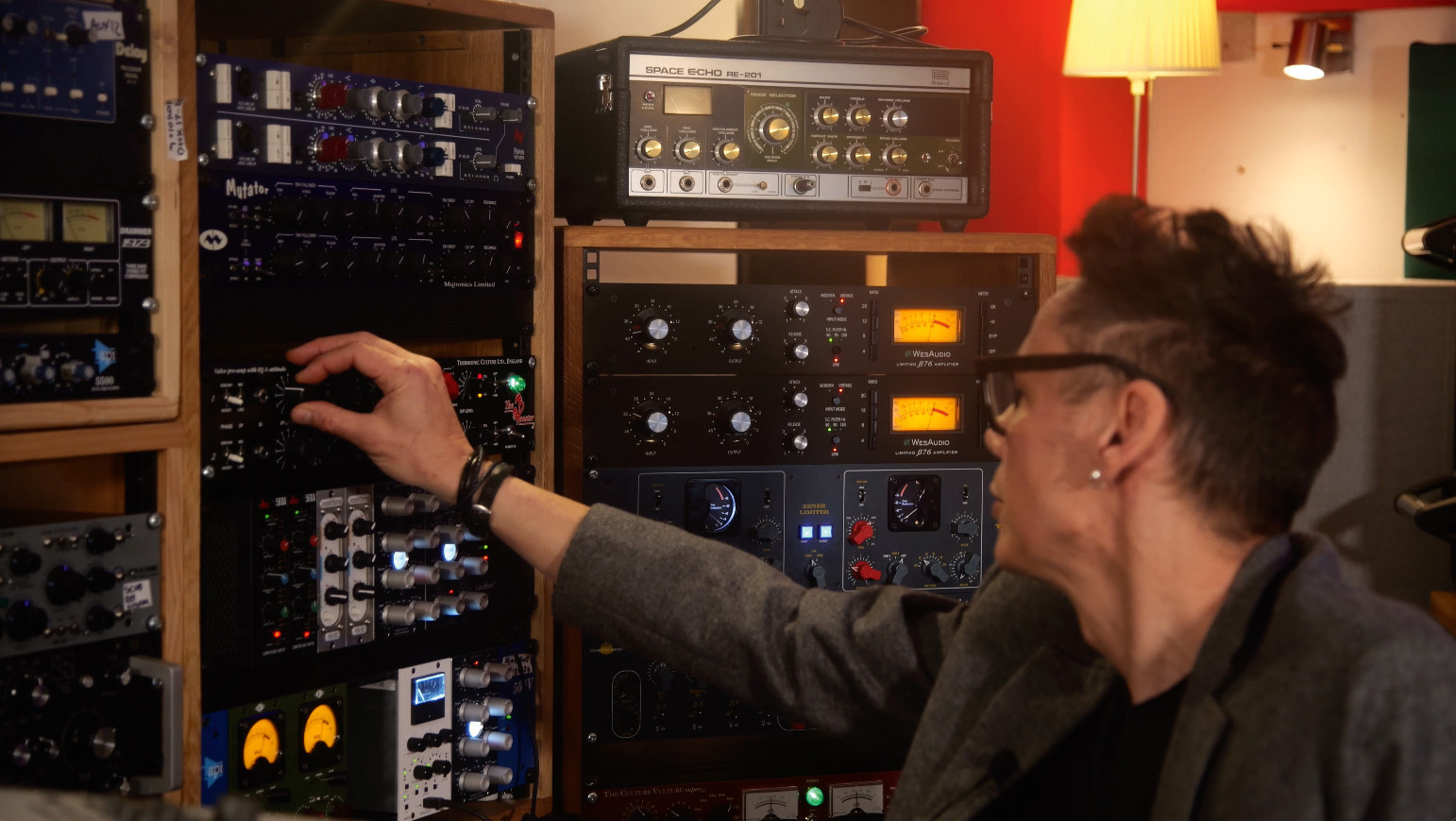
“I think there’s three tracks with live drums on the album and it took two months to actually end up with something that I thought was good enough. I mean, I’m not a professional drummer; I’ve got a feel, but I don’t play the drums every day. I do what I can, but the feel is there. After two months, we had drums that I thought worked. Then I managed to get them into some kind of state where they worked as a dance track. That was the bit I was interested in – whether they could be turned into something that I could play in a club.
“I learned a lot from the process. In the end, most of the good stuff came from just having one mic, really dampening the drums and then just recording it as dry as possible. With all the processing I put on it afterwards, that seemed to be the answer. We tried a multi-track take of drums, but it just didn’t really come across in the same way. So yeah, a sort of Motown-style one mic job.”
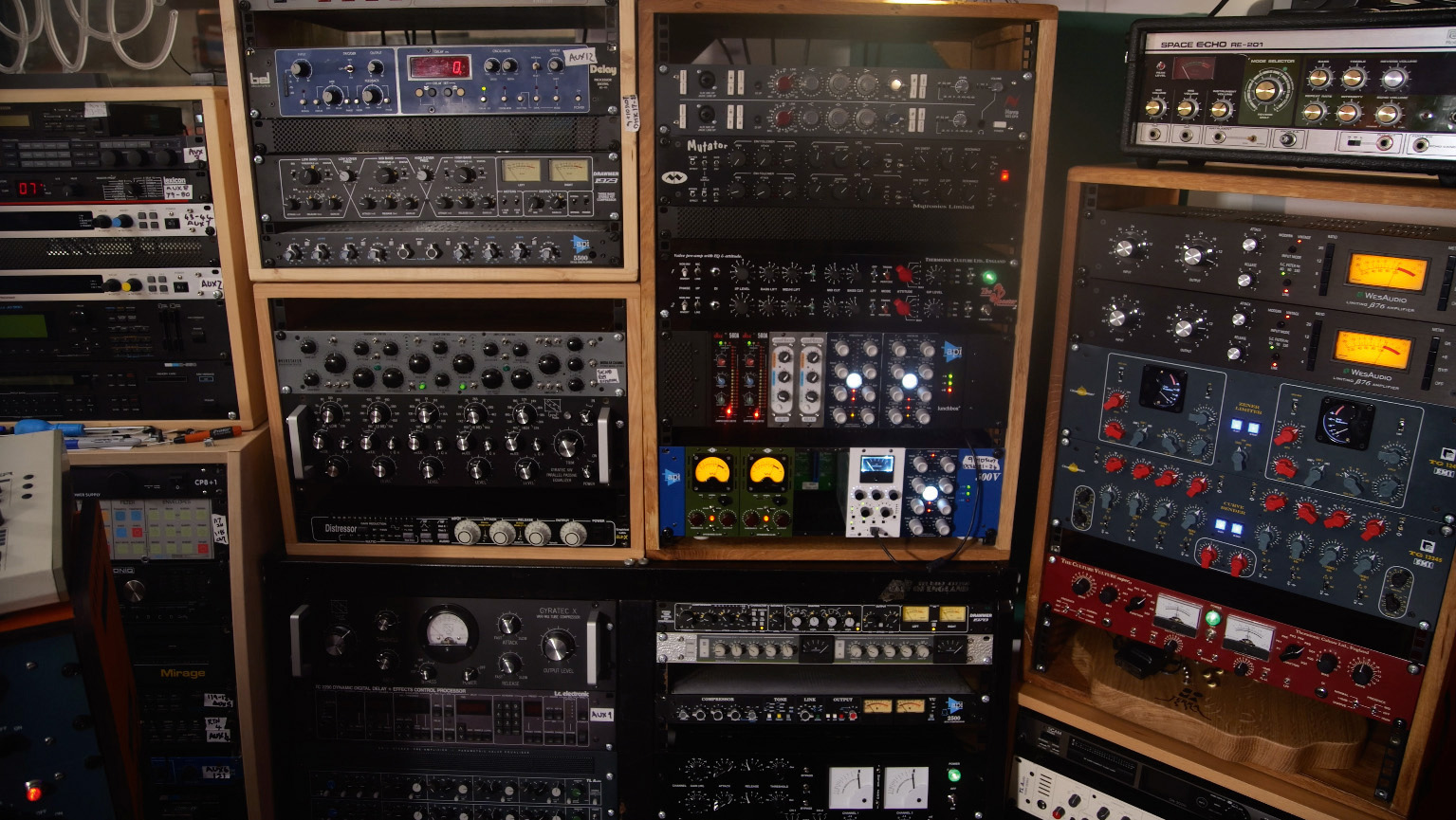
The album is quite vocal-led. How did those collaborations work?
“Traditionally I’ve worked with vocalists before in the studio, but I’m actually now more of a fan of working remotely. I think it depends how you do it, though. I still wanted an engagement with the vocalist. On this album, it really was all about the vocals, though. For example, the track with Robert [Owens] was about me backing up his vocals with L.B. Dub Corp music, rather than taking his vocals and sampling a bit and just putting them around a dance track. I really wanted to get that across to him and give him a free rein to do what he wanted. He completely just went for it, big time.

Luke Slater (aka Planetary Assault Systems) processing his TR-909
“Each track has been different. Saturn to Home with Miss Kittin, that track I have to admit is pretty Bob James influenced. It’s that kind of production that I was trying to get. That track just sat there for months and I couldn’t find any vocals for it. I tried my own vocals on it but that didn’t really work. I happened to be at a gig and Miss Kitten was there and I hadn’t seen her for a while. I said, ‘Look, I’ve got this track. It’s pretty off the wall. It’s not what you expect, but I think it’s meant for you.’ I sent her Saturn to Home and I think she felt really freed by the idea of doing something over a track that isn’t a standard techno track, but is pretty different and quite jazzy, I suppose.
“The initial thing that each vocalist had to work with was just a kind of basis, but when they’d done their vocals I changed quite a lot around it. It wasn’t like I was giving them this finished track and just saying I need a few samples on it. I actually changed stuff to fit around their vocals afterwards, so that it made sense with their vocals, rather than just laying them on top.
“There’s a lot of vocal samples in the tracks too, though. There’s a lot of street samples and a lot of samples that I’ve taken on travels. With Arnold from Eindhoven on Only the Good Times, I was lucky to capture him, because that’s such a good message. There’s also bits of street drumming that I come across. I’m always getting my phone up if there’s any kind of sound on the street and it’s got rhythm in it.
L.B. Dub Corp is a vessel where I can try things I don’t normally do, while keeping it relative to the soul of house music
“L.B. Dub Corp is a vessel where I can try things I don’t normally do, while keeping it relative to the soul of house music. The origins of L.B. Dub are totally influenced by the origins of house. The album is part homage to that, at the same time as trying to move things forward
Do you have certain bits of gear that you associate with different projects and aliases? Is your 909 always a go‑to for Planetary Assault Systems, for example?
“No, I think that comes more into effect with live shows. With Planetary live there’s always a 909. Whatever the processing or however it appears it is 909-led. But in the studio, that’s not always the case. There’s been Planetary Assault Systems records where the drum machine has just been a little plugin, or something done on the Elektron. It’s not always 909s for PAS and 808s for L.B. Dub Corp, or anything like that. It’s pretty flexi, really. When it comes to live shows though, Planetary is definitely built around the 909.”
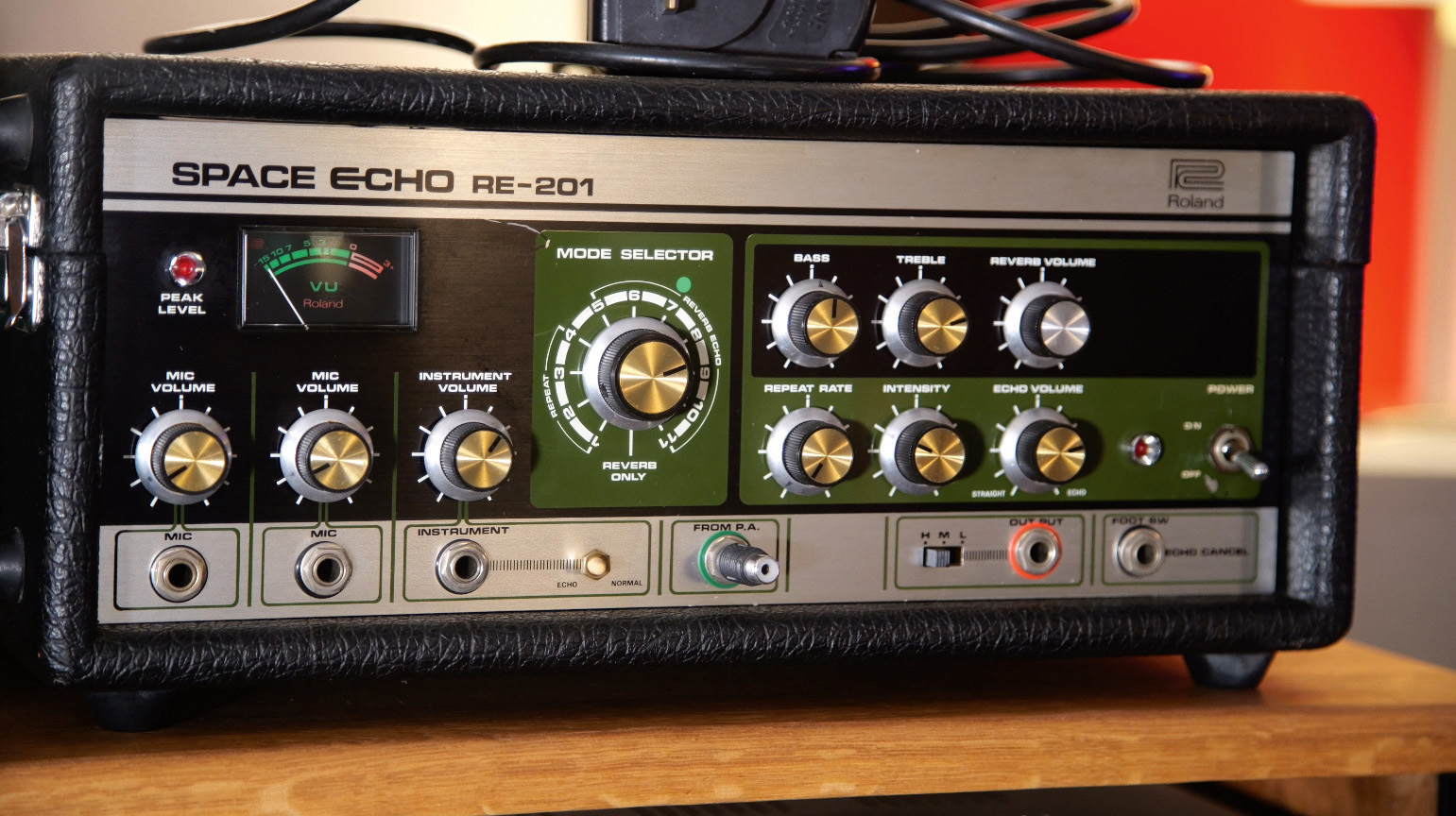
What do you think is the secret to making electronic music work live?
“The thing I’ve always found about live shows is that, quite rightly, I don’t think people should care too much about what you’re actually doing on your machines. There are some people that are intensely interested in what you’re doing, and that’s fine as well. But when there’s a crowd, it’s more important to me to try and get across something instantaneously, on the fly, of the moment, when I think of it. That kind of on the spot action is always the aim for me.
I don’t want to get too bogged down in stuff. I want to be present
“The way I’ve done that is by simplifying what I need to do as much as possible. Overcomplicating things doesn’t really work for me – it can work for some people, I don’t think that is a general philosophy of having a successful live show. For me, I don’t like to veer too much to the machines and not always totally with the crowd. There’s a kind of midway point with technology when it comes to live shows. That’s a comfortable point for me. I don’t want to get too bogged down in stuff. I want to be present.
“The only thing I’ve ever thought was the best tip for live shows is always to have some kind of backup in case all the machines fail. I’ve been to a few gigs where there’s been someone on before me doing a live show and, you know, it all goes down. It might go down for like 20 seconds, but it seems like two hours. Having a backup is a really secure way to approach it.”
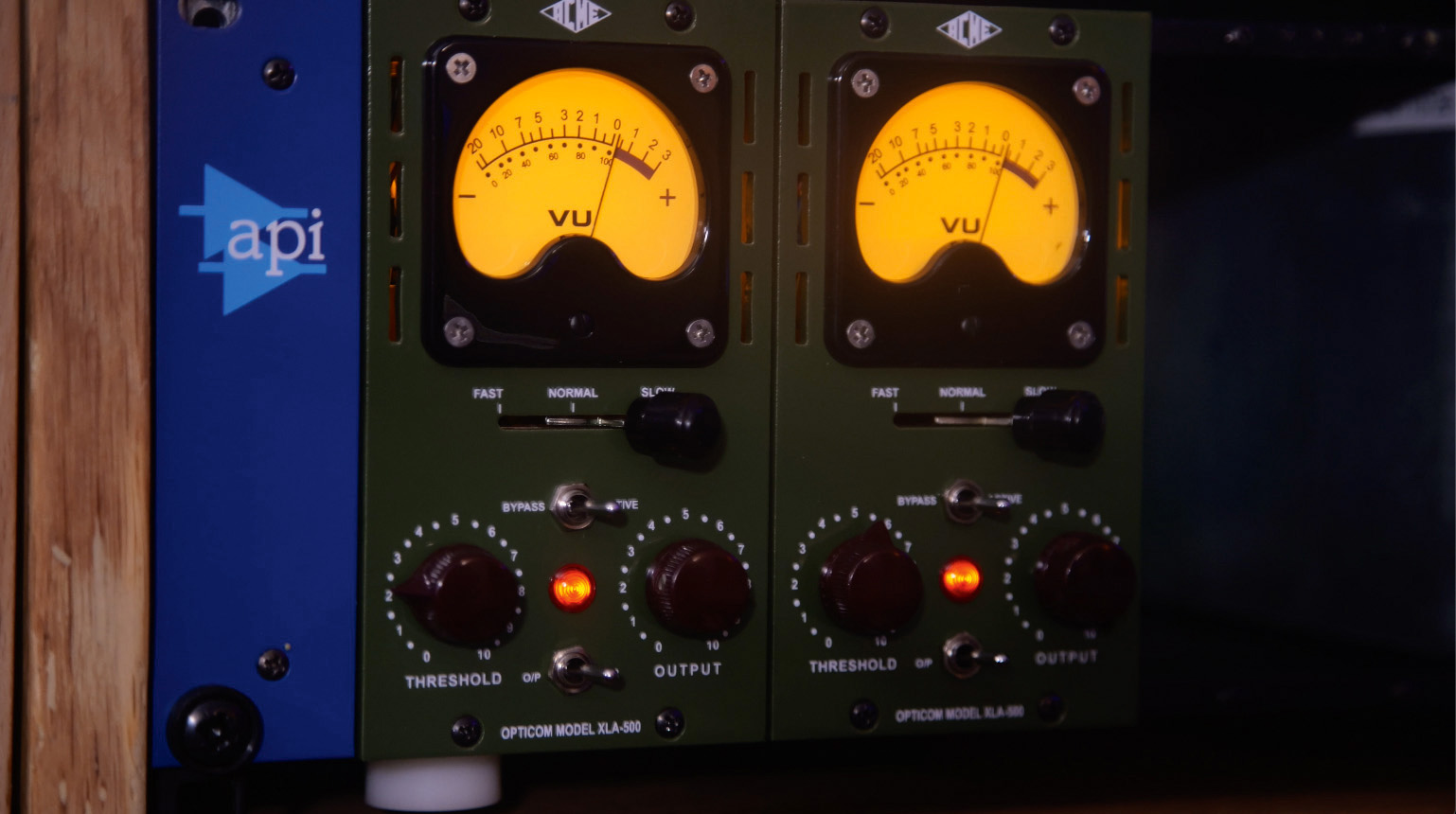
We’ve noticed you’ve several different DAWs running in your studio. What are you using each for?
“I was using Logic, originally, back when there was only Logic or Cubase at the time. Logic was the first DAW I used with audio. Then Ableton came along and pretty much took over the whole creative process of what I do, because it was so quick at looping and stacking up things very, very quickly.
For a live show, I only ever use Ableton, just because it’s really reliable
“Then Bitwig was introduced and I think that’s great, too. It’s Live-esque, but some of the interesting routings you can do with synths and some of the things they’re building into it are more extensive than Live and quite interesting. I’ve found it really interesting for experimenting with sound.
“I’ve ended up with a three-DAW situation. Sometimes they’re all literally synced up – so Logic could be synced to Ableton, and I might have Bitwig synced up as well. And there might be another machine synced up to all that… You might think that that’s quite confusing, but it works quite simply because Logic, at this point, really gets used as a kind of stem recorder. A lot of tracks end up in Logic to be mixed. For a live show, I only ever use Ableton, just because it’s really reliable.”
L.B Dub Corp's Saturn to Home is out now on Dekmantel.


I'm the Managing Editor of Music Technology at MusicRadar and former Editor-in-Chief of Future Music, Computer Music and Electronic Musician. I've been messing around with music tech in various forms for over two decades. I've also spent the last 10 years forgetting how to play guitar. Find me in the chillout room at raves complaining that it's past my bedtime.
